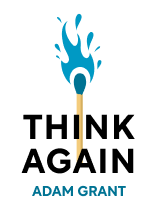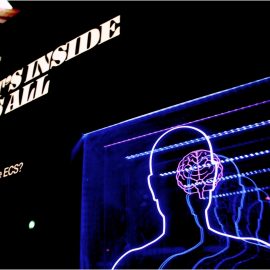

This article is an excerpt from the Shortform book guide to "Think Again" by Adam Grant. Shortform has the world's best summaries and analyses of books you should be reading.
Like this article? Sign up for a free trial here.
Do you find it difficult to admit that you were wrong? Why is it so hard to own up to your mistakes?
Admitting you were wrong can feel like a blow to your ego and self-image, but it’s an essential step to growing as a person. When you make a conscious effort to admit you were wrong, you express humility, which shows courage and open-mindedness.
Here’s how to get better at admitting you are wrong, according to Adam Grant.
How to Admit You Were Wrong
According to Adam Grant, the author of Think Again, admitting you are wrong requires that you detach your identity from your beliefs and opinions. He shares two suggestions for this:
Suggestion #1: Differentiate Your Current Self From Your Past Self
Detach yourself from your old beliefs by reflecting on who you used to be and how you have changed. Explore this concept by drawing a Venn diagram that shows the beliefs and values of your past self and how they compare with your beliefs and values today.
(Shortform note: Comparing yourself now to who you were in the past not only helps you acknowledge how your beliefs can evolve, but also makes you aware of the beliefs and opinions that haven’t changed over time. Recognizing that you have beliefs that you have never questioned may spur you towards reconsidering these views.)
Suggestion #2: Identify With Your Morals, Not Your Opinions
Learn to identify with morals and values rather than opinions or beliefs. Morals and values are your core principles (for example, generosity, kindness, or creativity). Grant asserts that morals and values provide a broader and more flexible framework for your identity than beliefs because you can apply them consistently across a broad range of situations. A belief, on the other hand, is usually far more narrow and specific, and it is less able to adapt to new evidence.
For example, a teacher believes that assigning homework is beneficial and feels threatened by recent evidence suggesting that homework provides few benefits. But when the teacher identifies creativity as a core value, she considers if there are more creative, effective ways to reinforce her lessons. She becomes open to adapting and experimenting with new methods that work best for her students—instead of being restricted to her old ways by her narrow belief.
(Shortform note: Grant says that you should live by your values, but he doesn’t explain how to determine what these values are. Experts suggest listing all the values important to you, and then categorizing these values—this helps you condense your list and identify the core values to live by. For example, values such as “honesty,” “humor,” and “authenticity” can fall under the core value of “strong relationships.”)

———End of Preview———
Like what you just read? Read the rest of the world's best book summary and analysis of Adam Grant's "Think Again" at Shortform.
Here's what you'll find in our full Think Again summary:
- Why the ability to reconsider is more important than precise knowledge
- How knowledge and expertise can narrow your thinking and limit your potential
- How to improve your ability to reconsider things in work and in life






